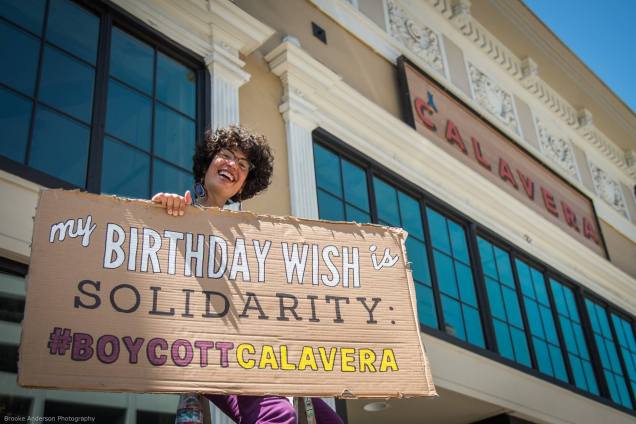
Don’t get me wrong: a boycott can be lovely. My birthday party last year was a festive picket line in service of an ongoing wage-theft and harassment struggle against local restaurant thief-boss Calavera.
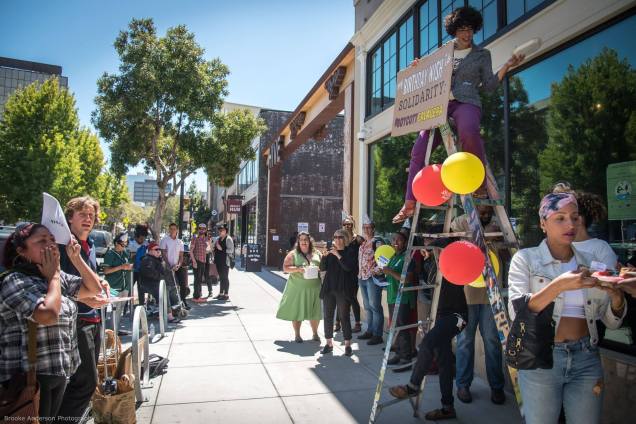
Photos of previous Calavera actions.
all photos by Brooke Anderson.
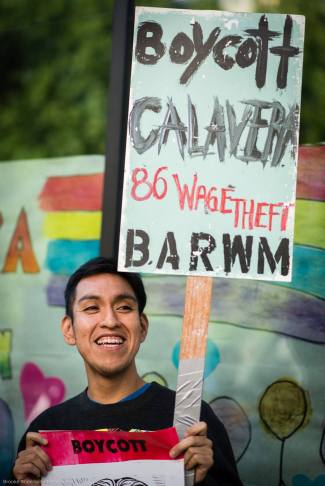
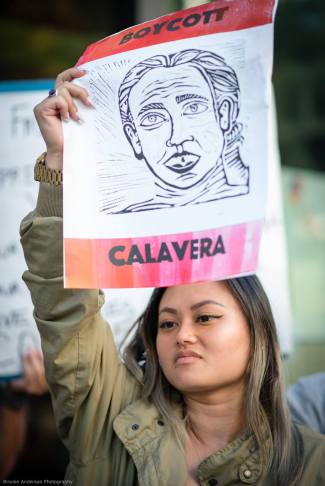
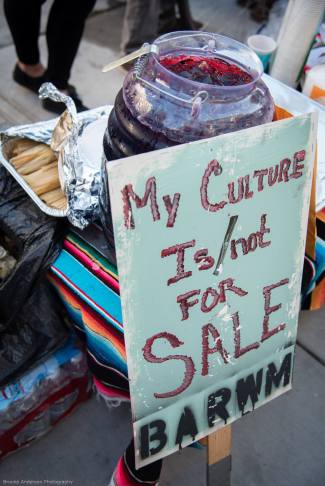
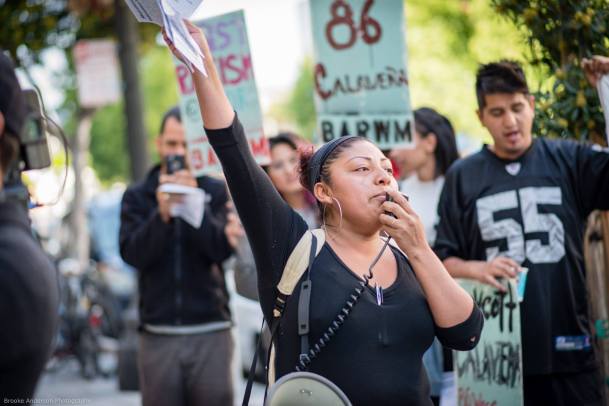
When done well, a boycott can of course be useful.
But how often are they actually done well? (Studies indicate: rarely.)
Is it just me, or do most boycotts these days seem like the tactical equivalent of trying to starve wild geese by withholding stale breadcrumbs?

Like I said, there are exceptions. Recent exceptions! Of boycotts done well.
- Chipotle (successful)
- Driscoll’s berries (still on)
- The banks funding DAPL (still on)
But many campaigns, even high-profile ones, are not done well. Shaun King, I’m looking at you. The majority of comments from participants in your Injustice Boycott (targeting cities in the U.S. to pressure them to… ¿value Black lives more?) are basically like HEY I SUPPORT THIS BUT IT’S HELLA VAGUE — WTF DO YOU ACTUALLY WANT ME TO DO???
No clear set of demands. No clear target until launch date (December 5th, 2016). No hint of coordinated legal strategy, or mass strikes in key industries of target cities.
Look, nobody’s perfect — least of all me. But I feel like we, collectively, can do better.
Yes, there are tricky technical questions of how to boycott chains and multinationals that can absorb a hit at a handful of stores. Or how to pressure corporate or government entities that don’t much give a hoot about liberals dragging their PR. But beneath these challenges there’s also a deeper problem.
Unless it’s meaningfully part of a dramatic, long-term strategy for change, even a victorious boycott basically reduces the level of egregious fuckery from Intolerable to Possibly Bearable, returning to a baseline of ‘normal’ exploitation.
To be fair, this is true of most campaign victories, a.k.a. reforms, regardless of the combination of tactics used. But that’s why people eventually start debating Reform or Revolution. Nowadays in U.S. movements, it’s hard to find where that debate is happening in a serious way, on a serious scale. More often the question is: How do we get reforms faster? Or: How do we take on larger targets, like Walmart, private prisons, or the police unions?
But let’s set aside reform-or-revolution for a second and get back to breadcrumbs.

Rather than just hoarding breadcrumbs and hoping the geese wither, why not hunt the killer capitalist flock in other ways (yes this metaphor is strange, and i don’t actually have anything against geese, but stay with me) and use them to make some stuffing? Topping for a baked pasta dish? A nice bread pudding?
In other words, what are we supporting with the resources we’re withdrawing from the boycott target?
(…To Be Continued…)
I like where you’re going wit this. Good to hear from you.
I’m interested!
Thanks for writing this. I’m feeling unimpressed by recent boycott calls, too. I remember the grape boycott when I was a kid, refusing to buy grapes in solidarity with Cesar Chavez and the farm workers in 1988 — that was a boycott related to the harmful method of making the product itself, and there were clear demands: stop exposing grape pickers to pesticides.
Усачев картинки http://niknozai.ru/gif/usachev-kartinki/